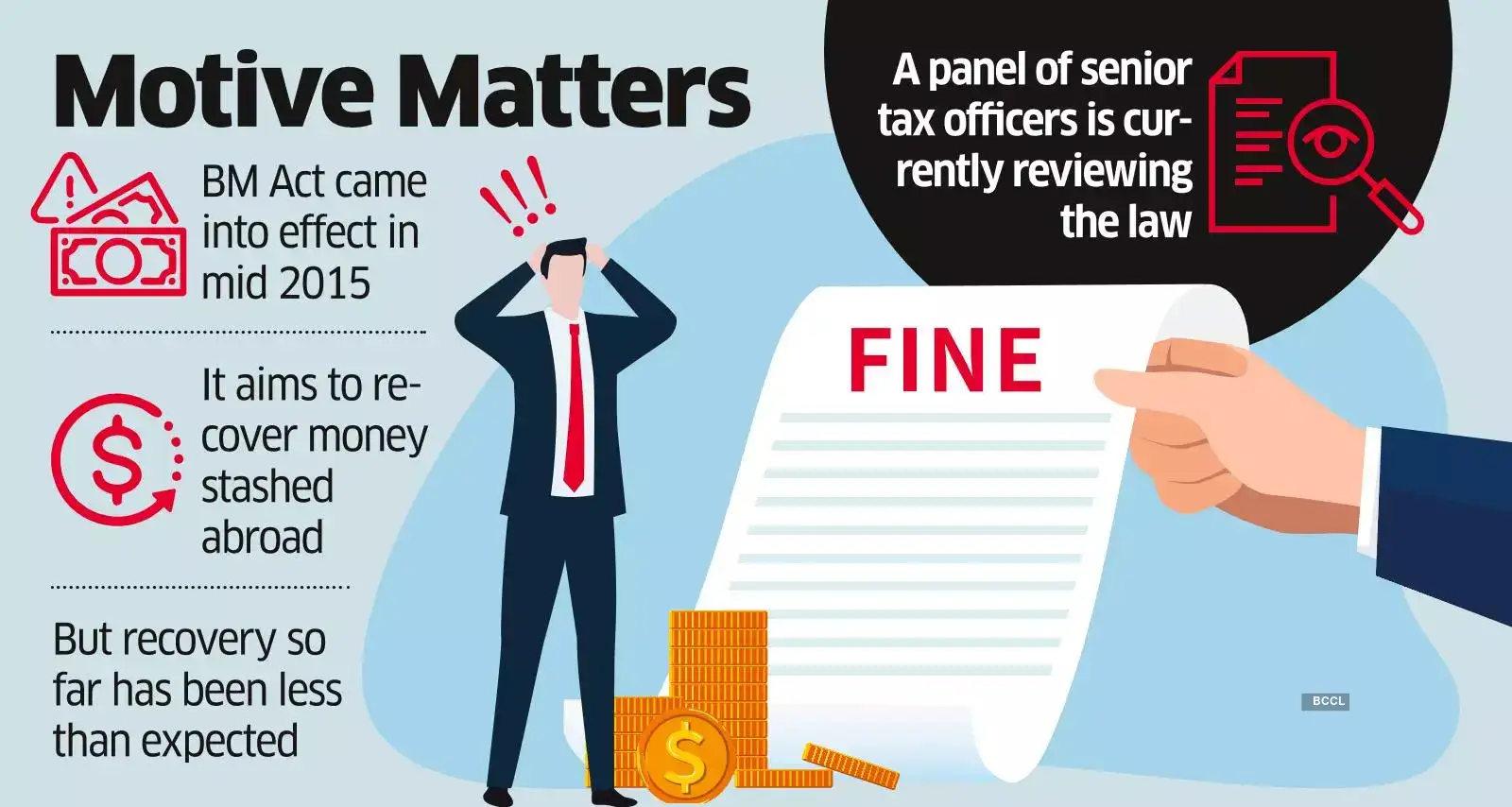Underneath the strict anti-Black Cash legislation, a penalty of ₹10 lakh could be imposed on a taxpayer for not reporting his offshore property. A superb also can set off prosecution proceedings.
Preferring the bizarre which means of the 2 English phrases within the related a part of the statute, a particular bench of the Revenue tax appellate tribunal has dominated {that a} penalty will not be “automated', and I-T officers have the ability to provide taxpayers some latitude relying on the info and circumstances.

The particular bench was fashioned as tribunals had been taking divergent views: some laying down {that a} superb is obligatory for non-disclosure whereas a couple of tribunal benches ruling that the I-T assessing officers have the discretion to pardon the penalty. A plain studying of the legislation suggests the latter. Tribunals are quasi-judicial authorities.
Part 43 of the Black Cash (Undisclosed International Revenue and Belongings) and Imposition of Tax Act, 2015 says : if any particular person fails to furnish any info or furnishes inaccurate particulars relating property situated outdoors India, held by him as a helpful proprietor or in any other case, “the Assessing Officer ‘could' direct that such particular person ‘shall' pay, by the use of penalty, a sum of ten lakh rupees.”
In its order launched every week in the past, the particular bench stated, “… it's (a) properly established precept of interpretation of statutes, that the phrases should be given their plain and bizarre which means, except it results in absurd outcomes or penalties which might by no means be supposed. Making use of this check, using the phrase ‘could' would clearly point out that it's discretionary in nature.”
In day-to-day utilization, the phrase ‘could' talks about potentialities whereas ‘shall' hints at obligations. Nevertheless, when the king says ‘could', it's a command, not a request. In keeping with the decision, tax authorities can not use ‘could' and ‘shall' interchangeably whereas invoking Part 43 of the tough statute. It, thus, comes throughout as a reminder that the taxman should follow the bizarre which means of the phrase ‘could' quite than use it like a monarch, carrying the total weight of the sovereign.In keeping with Ashish Mehta, accomplice on the legislation agency Khaitan & Co, “This is a vital ruling. The division's competition that the avowed intention of BMA legislation was to take care of the menace of black cash stashed overseas and therefore the levy of penalty was mechanically attracted the second there was a non-reporting of offshore property, has not been accepted. The Particular Bench has held that using the phrase ‘could' by the legislature together with the process requiring a present trigger discover and searching for response itself exhibits that due discretion has been granted to tax officers to think about pleadings of the taxpayers. An adhoc penalty of ₹10 Lakh could be fairly steep particularly in circumstances the place there may be merely a minor, inadvertent, venial or technical lapse of non-reporting by taxpayers, extra so in circumstances involving smaller quantities, with none intention to evade taxes.”Right here, the case is a few couple who had invested with a Cayman registered asset supervisor, utilizing the Reserve Financial institution of India's liberalised remittance scheme, however had not reported the funding of their I-T returns for the evaluation 12 months 2020-21. However they did report the funding later, properly earlier than receiving the tax discover. Thus, official channels and tax-paid cash had been used for the transaction which was not supposed to be stored hidden.
The choice doesn't prescribe any exams, however officers would think about the taxpayer's intent, nature and worth of the asset, and disclosure historical past, earlier than deciding whether or not a penalty is warranted, stated Ashish Karundia, founding father of the CA agency Ashish Karundia & Co. “So, penalty orders could be reasoned and fact-based, quite than automated. Whereas complete, correct, and well timed disclosure stays crucial, the ruling provides an avenue for reduction in circumstances of real oversight or technical non-compliance, mitigating dangers of disproportionate penalties publicity,” stated Karundia.










